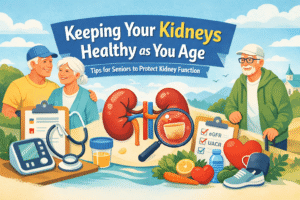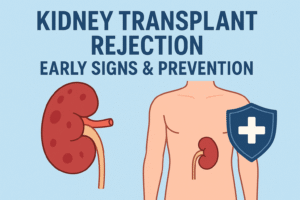For a long time, kidney care stuck to a familiar path — meds, routine dialysis, and, if needed, a transplant later on. But now, things are changing. Fast. At Southern Oklahoma Kidney Center, we are watching a wave of new possibilities take shape. These changes matter because they do not just treat. They aim to prevent, ease, and maybe even replace the hardest parts of kidney care.
Here is what is coming — and why it could change everything.
Growing New Kidneys? It Is Starting to Happen
Lab-grown tissue is no longer just talk. Researchers are using stem cells to grow early versions of kidney structures. It is part of what is called regenerative kidney therapy, and it is designed to repair kidneys instead of replacing them. It is still early, yes. But pieces of it are already moving from labs into human trials.
One day, this could mean fewer transplants. Or even avoiding dialysis altogether for some patients. We are not there yet — but it is getting closer.
Rethinking Dialysis from the Ground Up
Dialysis has saved lives for years. But no one calls it easy. Now, some of the newest designs focus on making it lighter, faster, and easier to live with. Think portable machines. Nighttime options that do not drain your whole day. Even wearable models in testing right now.
These devices fall under advanced dialysis technology, and the goal is simple: treat your kidneys without taking over your life.
New Medications That Target the Problem
Most current meds for kidney disease manage symptoms. What if they could slow or stop the actual damage? That is where a new class of drugs is heading — aimed at inflammation, fibrosis, and the chemical signals that drive kidney decline.
This is a big shift in non-invasive kidney care. It means treating the root issues instead of reacting to lab numbers after things have already gotten worse.
Predict and Prevent — Thanks to AI
Artificial intelligence is finding its way into kidney clinics. Not as robots — but as tools that spot patterns, flag risks, and track tiny changes before they grow. That means we can act earlier. Adjust meds before trouble starts. Prevent bad days before they show up.
It is not replacing doctors. It is helping them notice things faster, with better context.
The Era of Custom Kidney Care
You are not like anyone else. So why should your care be?
Today, more kidney care includes genetic testing, lifestyle mapping, and personalized treatment planning. That means a plan built around how your body responds, not what works for most people. These kinds of kidney disease treatment innovations are already changing how we decide which meds to use, what diet works best, and how to handle dialysis timing.
If you are curious, you can always ask our team about emerging kidney care solutions. You do not need to be in crisis to explore your options.
You Do Not Have to Wait for the Future
Some of this sounds far off. But a lot of it is already happening — right now, in real clinics. If something new could help, we will tell you. If it is still being tested, we will explain what to watch for.
At Southern Oklahoma Kidney Center, we do not chase hype. We follow the science. Then we bring what works to the people who need it.
If you are ready for a different kind of conversation about kidney care, we are here.




